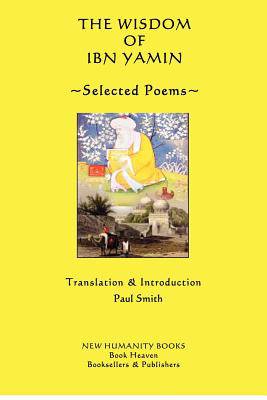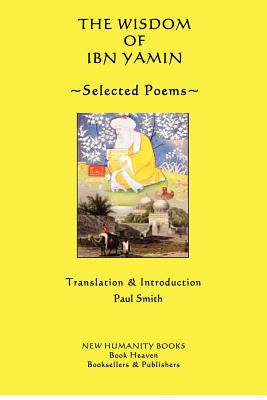
- Retrait gratuit dans votre magasin Club
- 7.000.000 titres dans notre catalogue
- Payer en toute sécurité
- Toujours un magasin près de chez vous
- Retrait gratuit dans votre magasin Club
- 7.000.0000 titres dans notre catalogue
- Payer en toute sécurité
- Toujours un magasin près de chez vous
Description
THE WISDOM OF IBN YAMIN SELECTED POEMS Translation & Introduction Paul Smith Amir Fakhr al-Din Mahmud, or Ibn Yamin (1286-1367), was born in Turkistan. His father was a poet who taught him the craft and left his son wealthy and the role of the court-poet in Khurasan. Ibn Yamin was taken captive when war broke out in 1342 and his complete Divan of poems was destroyed. He was a master of the form of the qi'ta. He is now as he was then, famous for his down-to-earth wisdom. Hafiz was probably influenced by his poems. During the last 25 years of his life he composed 5000 couplets on top of all he remembered. Here is the largest translation of his poems published in correct-rhyming, meaningful English. Introduction: Life & Times & Poetry, Forms in which he wrote, Bibliography. 155 pages.COMMENTS ON PAUL SMITH'S TRANSLATION OF HAFIZ'S 'DIVAN'."It is not a joke... the English version of ALL the ghazals of Hafiz is a great feat and of paramount importance. I am astonished. If he comes to Iran I will kiss the fingertips that wrote such a masterpiece inspired by the Creator of all." Dr. Mir Mohammad Taghavi (Dr. of Literature) Tehran. "Smith has probably put together the greatest collection of literary facts and history concerning Hafiz." Daniel Ladinsky (Penguin Books author). "Superb translations. 99% Hafiz 1% Paul Smith." Ali Akbar Shapurzman, translator of many mystical works in English into Persian and knower of Hafiz's Divan off by heart.Paul Smith is a poet, author and translator of over 80 books of Sufi poets of the Persian, Arabic, Urdu, Turkish, Pashtu and other languages including Hafiz, Sadi, Nizami, Rumi, 'Attar, Sana'i, Jahan Khatun, Obeyd Zakani, Nesimi, Kabir, Anvari, Ansari, Jami, Khayyam, Rudaki, Yunus Emre, Lalla Ded and many others, as well as poetry, fiction, plays, children's books, biographies and 12 screenplays. amazon.com/author/smithpa Published by New Humanity Books
Spécifications
Parties prenantes
- Auteur(s) :
- Traducteur(s):
- Editeur:
Contenu
- Nombre de pages :
- 200
- Langue:
- Anglais
Caractéristiques
- EAN:
- 9781480005273
- Date de parution :
- 22-09-12
- Format:
- Livre broché
- Format numérique:
- Trade paperback (VS)
- Dimensions :
- 152 mm x 229 mm
- Poids :
- 299 g

Les avis
Nous publions uniquement les avis qui respectent les conditions requises. Consultez nos conditions pour les avis.






